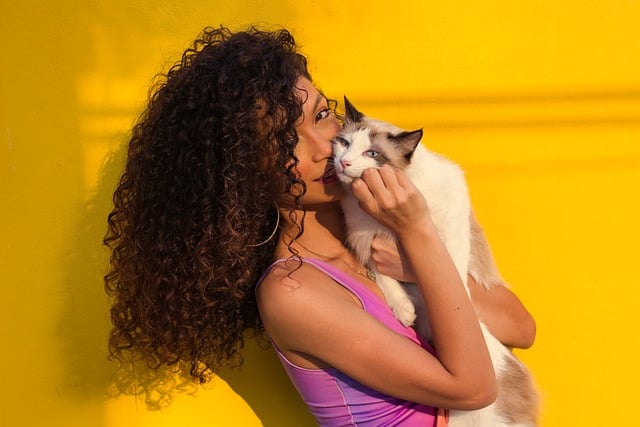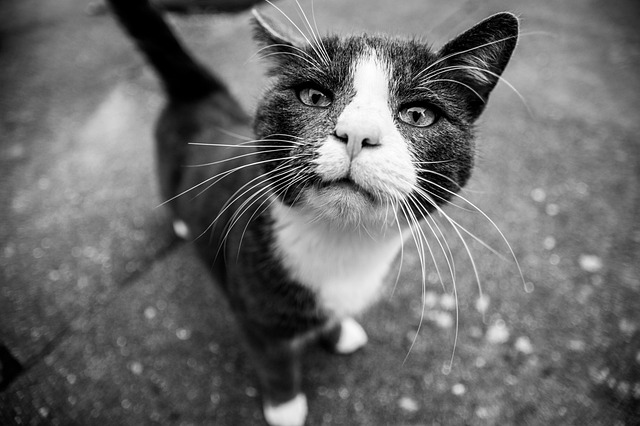In a competitive pet care market, professionalizing cat sitting is rising due to homeowners' demand for specialized feline services. Traditional certifications lack specific cat-focused training, but certified cat sitters offer expert knowledge in behavior, environment management, medication administration, and stress/illness recognition. Top-tier certification programs include practical training with real cats, ongoing support through forums or webinars, and emphasis on industry best practices. These certifications enhance cat sitters' skills, knowledge, and credibility, providing personalized care tailored to each cat's unique needs. Pet owners gain peace of mind knowing their cats are in capable hands. To become a certified cat care specialist, assess your skills, choose an aligned program with flexible online options, and focus on reputation and support services for differentiation and reliability.
In today’s thriving pet care industry, professional cat sitting certification is more essential than ever. As the demand for specialized feline care grows, understanding the unique needs of cats becomes paramount for aspiring cat sitters. This article explores the crucial role of certification in ensuring high-quality cat sitting services. We’ll uncover key components, benefits, and navigation tips to help you choose the perfect course, empowering you to become a trusted cat care specialist. Elevate your career as a cat sitter with these valuable insights!
- Understanding the Need for Professional Cat Sitting Certification
- Key Components of an Effective Cat Sitting Certification Program
- Benefits of Earning a Pet Sitting Certification for Cat Care Specialists
- How to Navigate and Choose the Right Certification Course for You
Understanding the Need for Professional Cat Sitting Certification
In the competitive world of pet care services, professionalizing cat sitting has become increasingly important. With a growing demand for specialized pet care, many homeowners are seeking qualified and certified cat sitters to ensure their feline companions receive the best possible attention while they’re away. This shift highlights the need for standardized training and certification programs tailored specifically for cat care specialists.
Traditional pet sitting certifications often lack the focused approach required to cater to the unique needs of cats. Certified cat sitters, on the other hand, are equipped with the knowledge and skills to handle a range of cat-related tasks, from administering medication to recognizing and addressing common feline health issues. This specialized training not only boosts the confidence of pet owners but also ensures that their cats receive expert care, fostering trust between caregivers and pet parents alike.
Key Components of an Effective Cat Sitting Certification Program
A comprehensive Cat Sitting Certification program for specialists in feline care should include several key components to ensure effective learning and skill development. Firstly, an engaging curriculum that covers a wide range of topics relevant to cat welfare is essential. This includes understanding common cat behaviors, creating safe and stimulating environments, administering medication, and recognizing signs of stress or illness. Practical training sessions with real cats would greatly enhance the experience for aspiring cat sitters, allowing them to hone their skills under guidance.
Additionally, a certification program should offer ongoing support and resources to cat sitters post-training. This could be in the form of online forums, community events, or regular webinars where professionals can share insights, ask questions, and stay updated on industry best practices. Such continuous learning opportunities ensure that cat sitters remain competent, confident, and up-to-date with any advancements in feline care, ultimately providing better services to their clients and their beloved pets.
Benefits of Earning a Pet Sitting Certification for Cat Care Specialists
Earning a Pet Sitting Certification for Cat Care Specialists brings numerous benefits, both for the professionals and the feline they care for. Such certification programs are designed to enhance the skills and knowledge of cat sitters, ensuring they can provide the best possible care. By learning about feline behavior, nutrition, and common health issues, certified cat sitters can offer tailored services that cater to each cat’s unique needs. This specialized training enables them to handle situations with confidence, from administering medications to recognizing signs of distress, thereby fostering a safe and comfortable environment for pets while their owners are away.
Moreover, certification adds credibility to the profession, distinguishing qualified cat sitters from their peers. It reassures pet owners that their cats will receive competent care, increasing trust and peace of mind. With a certified professional, owners can focus on their own schedules and commitments, knowing their beloved felines are in capable hands. This is especially valuable for those who rely on cat sitters regularly or for longer periods, ensuring consistent, high-quality care for their furry companions.
How to Navigate and Choose the Right Certification Course for You
When it comes to becoming a certified cat care specialist, navigating the sea of available courses can be daunting for aspiring pet sitters. The key is to choose a program that aligns with your goals and experience level. Start by evaluating your current skills and knowledge about feline care. Are you an expert in basic grooming and feeding routines, but lack hands-on experience with medical emergencies? Look for courses that cater to specific areas of interest or skill gaps. Online platforms offer flexibility, allowing cat sitters-to-be from all over to access specialized training at their own pace.
Additionally, consider the reputation of the certification provider. Reputable organizations often have rigorous standards and industry partnerships, ensuring that your certificate holds weight with potential clients. Read reviews, check for industry endorsements, and inquire about job placement assistance or networking opportunities to make an informed decision. Remember, selecting the right certification course is a crucial step in distinguishing yourself as a knowledgeable and responsible cat sitter.






